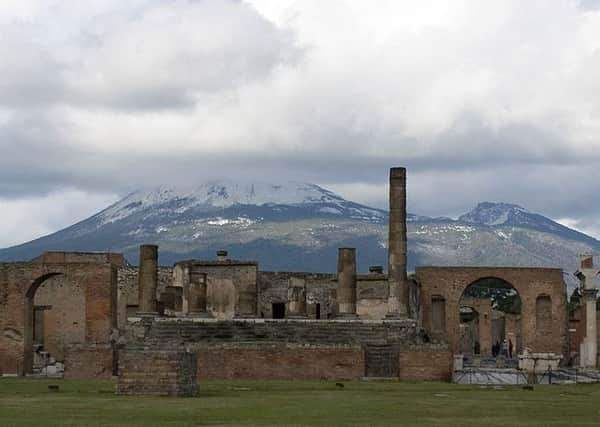Education Column: Expanding students' minds on trips to far-flung shores


Tired and wanting a long sleep in their own bed, off stepped 40 children and their dedicated teachers.
They had just returned from a four-night trip to Italy. After a late flight to London and a coach journey home, they were picked up by parents who had missed them, sure, but probably equally enjoyed the peace.
Advertisement
Hide AdAdvertisement
Hide AdThis school trip had taken in the historical sights of Pompeii and the geographic wonder of Vesuvius, but it is far from the only foreign educational visit organised by Sheffield teachers.
Trekking on glaciers in Iceland, enjoying water sports in France, language exchanges with Spaniards, helping societies in Kenya, studying business in New York and developing language skills in Germany.
These are just some of the opportunities offered to Sheffield students every year. And what opportunities they are.
The English philosopher Francis Bacon just about nailed it in the 16th century when he said: “Travel, in the younger sort, is a part of education.” Five centuries later, this still rings true.
Advertisement
Hide AdAdvertisement
Hide AdTime spent experiencing other cultures, sampling new foods, meeting people from different backgrounds and gazing on historical sites is character building and inspirational.
And so we should celebrate the city’s teachers who put their time and effort into providing these great chances for Sheffield’s children.
Make no mistake – even though teacher places on such trips may be free, these visits are not “holidays” or “jollies”.
Making the bookings, arranging the transport, dealing with all the passports, taking care of everybody’s needs and holding information evenings means days and days of work before the plane leaves the ground.
Advertisement
Hide AdAdvertisement
Hide AdOnce there, teachers are on call 24 hours a day for the whole trip. This means late nights and early mornings, or sometimes no sleep at all.
And with headteachers increasingly reluctant to let students lose lesson time – especially at GCSE – many of these foreign trips are taken in the school holidays. This can mean teachers returning to school even more exhausted than when they left!
Questions must be asked, though, about which students gain access to such wonderful opportunities. Foreign visits do, of course, need paying for. A student from a low-income family is unlikely to get much joy if they take home a letter about an Iceland trip costing £800.
That same student may, however, stand a better chance if the school puts on an overnight trip to York or London. It may not be the same as heading off to Europe, but there’s a lot to gain from visiting museums and seeing plays in this country.
Advertisement
Hide AdAdvertisement
Hide AdWhat’s needed, then, is a mix of opportunities so that students from all backgrounds can make the most of school trips. In some cases, this may involve subsidies being given by the school to low-income families.
Thankfully, this is already happening in many schools, meaning thousands of children are benefiting from trips celebrating humanities, literature, science and languages.
One aspect of the school trip that people do need to think about, though, is the reaction of parents. Running a school trip is not an easy job. In fact, it’s extremely hard and goes way above and beyond what should be expected of a teacher.
But I have been present when many foreign trips have returned to school and am simply astonished at the ridiculously low number of parents who actually say “thank you” to the staff who have been looking after their children while abroad.
Advertisement
Hide AdAdvertisement
Hide AdMost pick up the students and saunter off back home like they’ve just collected them from homework club.
This, sadly, is a reflection of a larger social trend in which respect for teachers has nosedived faster that the post-Brexit pound.
And so when you come across a teacher who has gone the extra mile and arranged an overnight trip, let them know you appreciate it.
Thank them for giving up their time for our children.
l You can get involved by following our Twitter account @Sheff_Schools and sharing your own stories. If you want to remain anonymous, send a direct message and I’ll be in touch. You can also write to me via Telegraph Education, Sheffield Telegraph, York Street, Sheffield, S1 1PU, or on [email protected] via email.